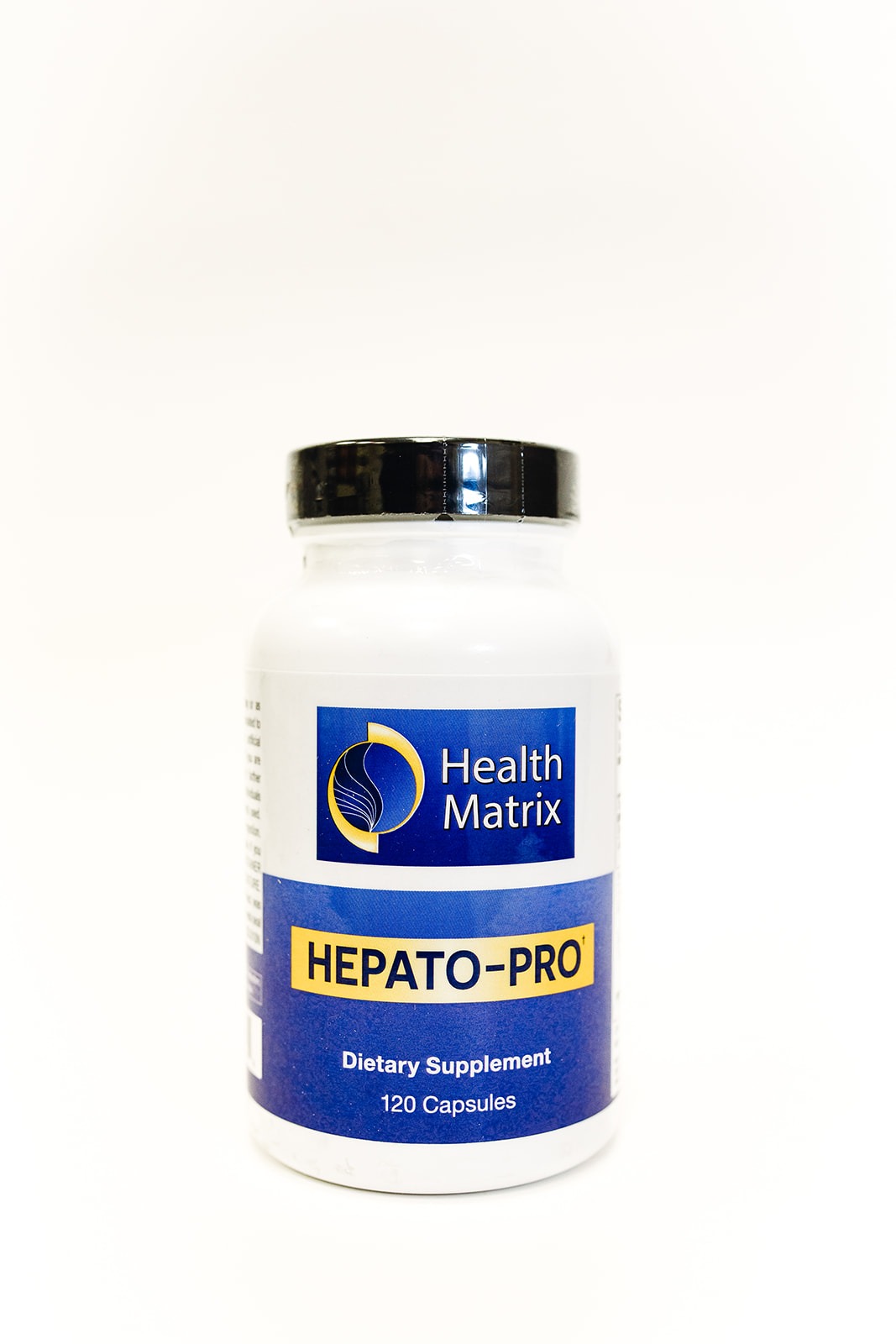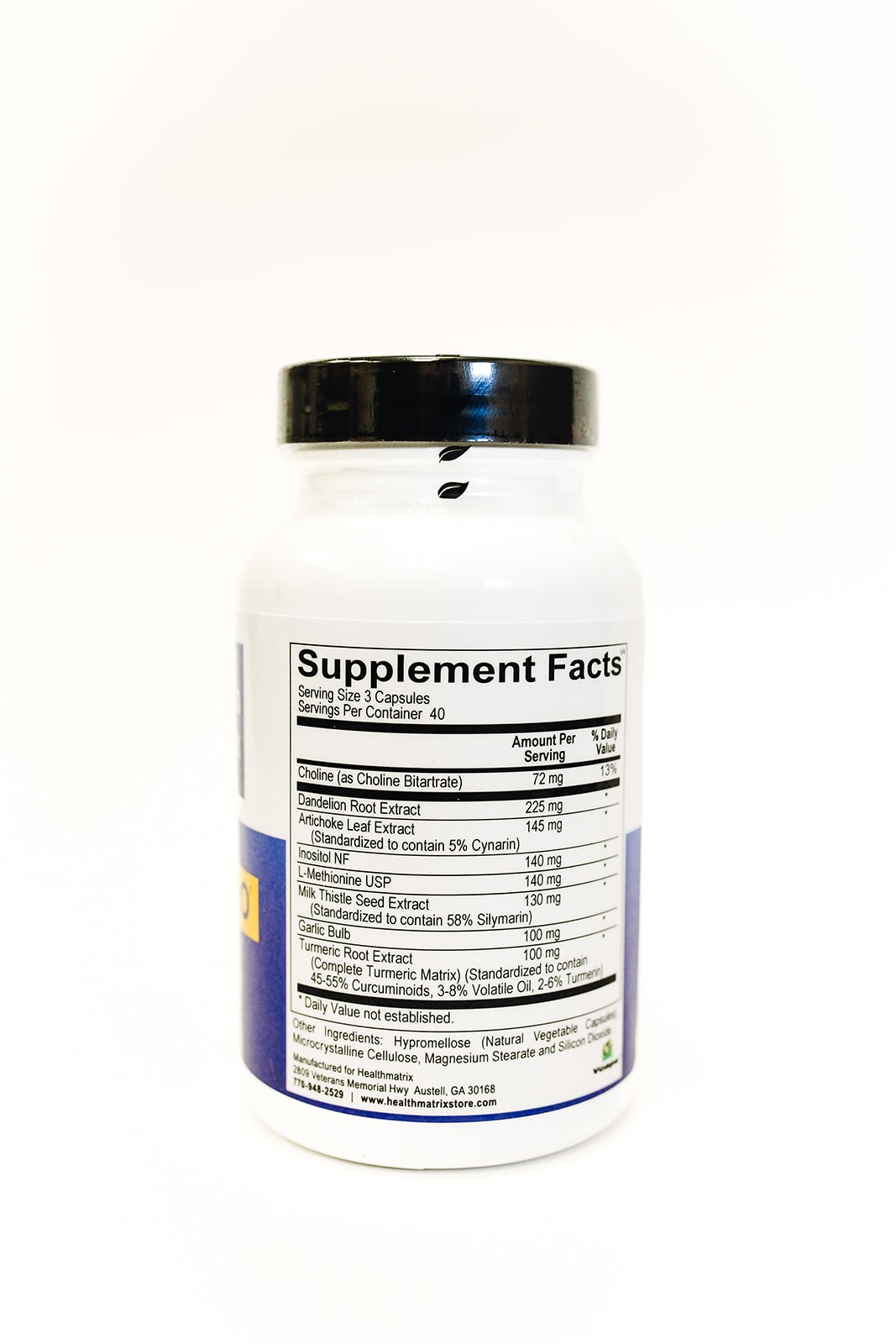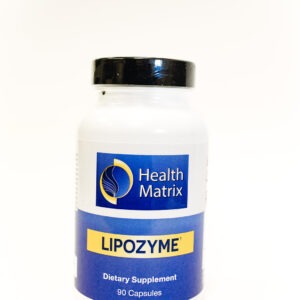HEPATO PRO
$60.99
• Boosts Liver Health
• Supports Phase I and II Liver Detoxification
• Increases the Body’s Production of Bile
• Supports Immune Balance in Hypersensitive Individuals
The specialized blend of nutrients in this product has been shown to stimulate Phase I and II biotransformation and support the body’s natural liver cleansing function during detoxification.
120 Capsules
2-3 capsules two times per day or as recommended by your health care professional.
Does Not Contain Gluten, yeast, artificial colors and flavors.
Cautions: Do not consume this product if you are pregnant or nursing. Consult your physician for further information.
The human body is exposed to a wide variety of toxins on a daily basis, including chemicals found in foods, environmental toxins and pharmaceuticals. The liver is the body’s main detoxification organ, and provides enzyme systems that safely process and remove xenobiotics and unhealthy hormone metabolites out of the body. These detoxification systems are very complex and require a variety of nutrients for optimal function.There are two main pathways of detoxification in the liver, known as Phase I and Phase II. Phase I, composed mainly of cytochrome P450 enzymes, involves non-reactive compounds undergo specific reactions which use oxygen to form a reactive site on the compound. Most pharmaceuticals are metabolized through Phase I biotransformation. This prepares the metabolite for the next step of detoxification, known as Phase II. Phase II is a crucial step— if molecules from Phase I are not fully metabolized by Phase II conjugation, they may cause free radical damage to proteins, RNA and DNA within the cell. Phase II reactions result in the biotransformation of fat-soluble compounds into water-soluble compounds that can then be excreted in the urine, bile or stool. This product’s botanicals and plant extracts contain phytonutrients, antioxidants and other compounds that naturally protect plants from environmental challenges including exposure to radiation, toxins and infectious agents. In humans, these biologically active compounds have been shown to increase cellular defenses, up-regulate liver detoxification pathways and protect DNA.
Milk thistle (Silybum marianum) is an annual plant indigenous to Europe and the United States and has been used for centuries as a botanical medicine to support liver health. S. marianum contains silymarin, the biologically active component found in the seeds and leaves of this plant. Silymarin provides liver-protective effects via several mechanisms of action including inhibiting lipid peroxidation, supporting liver detoxification through enhancement of the liver’s glucuronidation pathways, and protection against glutathione depletion. Silymarin has been shown to increase hepatocyte protein synthesis resulting in enhanced detoxification function.Artichoke Leaf Extract†
Artichoke is one of the oldest cultivated plants. The ancient Greeks and Romans considered artichoke to be a valuable digestive aid. In traditional European medicine, the leaves of the artichoke were used as a diuretic to stimulate the kidneys and as a choleretic to stimulate the flow of bile from the liver and gallbladder. Artichoke leaf extracts have been shown to provide antioxidant and liver support, including the maintenance of healthy cholesterol levels and the prevention of lipid oxidation.6 In a double-blind crossover study in 20 subjects, artichoke extract was shown to increase bile secretion.7 Animal studies have shown that artichoke protected liver cells against oxidative stress and prevented loss of glutathione.Turmeric Root Extract (Curcumin)†
Curcumin, the active compound in turmeric, an orange-colored spice used for thousands of years in cooking and medicine, has been shown to support the body’s antioxidant and detoxification pathways. Curcumin elevates cellular levels of glutathione, one of the body’s major antioxidants that protects cells against free radical damage. Curcumin has been shown to increase glutathione S-transferase (a Phase II detoxification enzyme), as well as the enzymes superoxide dismutase (SOD), catalase, and glutathione peroxidase which results in a significant increase in a variety of antioxidant defenses. In a study examining the effects of curcumin on cells loaded with arsenic, curcumin effectively counteracted the effects of arsenic by increasing the activity of the primary detoxification enzymes SOD, catalase and glutathione peroxidase.Garlic†
Garlic is a well-known spice with a number of healthpromoting properties. In addition to its cardio-protective and immune supporting effects, garlic also plays a role in supporting detoxification and antioxidant pathways. In an animal study, the effects of garlic on hepatic cells were examined following exposure to the toxic heavy metal, arsenic. Arsenic administration resulted in generation of free radicals, specifically reactive oxygen species (ROS), which caused cell damage. The ROS generation in hepatic tissue reverted to normal values following the administration of garlic extract indicating the strong liver-protecting effect of garlic.
Dandelion Root Extract†
Dandelion (Taraxacum officinale) is a native plant to the United States and Europe, where the leaves and roots have been used as food and herbal medicine. The German Commission E and European Scientific Cooperative for Phytotherapy have approved the use of dandelion root to support hepatic and biliary function. Studies conducted in animals, have shown that dandelion root increases bile secretion as well as glutathione peroxidase, glutathione reductase and SOD.
Methionine and Choline†
Studies have shown that the nutrients methionine and choline play a significant role in supporting normal liver cell function. Methionine and choline act as lipotropic agents which aid in fat metabolism as well as mobilization of fat out of the liver. Studies using mice fed a diet deficient in methionine and choline were found to have increased fatty acid uptake and decreased very-low-density lipoprotein (VLDL) secretion. In a study examining the effects of choline in 60 men it was found that consumption of 550 mg of choline per day supported the health and function of the liver, as assessed by measuring serum alanine aminotransferase concentrations.
Beet Leaf†
Beet leaf (Beta vulgaris) has been used traditionally to help support liver function. Research has shown that beets are an excellent source of the nutrient betaine. Betaine acts as a methyl donor and supports the methylation detoxification pathway. Betaine assists in the conversion of homocysteine to methionine as well as increasing s-adenosylmethione (SAMe) levels. This prevents fat infiltration in the liver and protects against the free radical stress generated by toxic chemicals.




